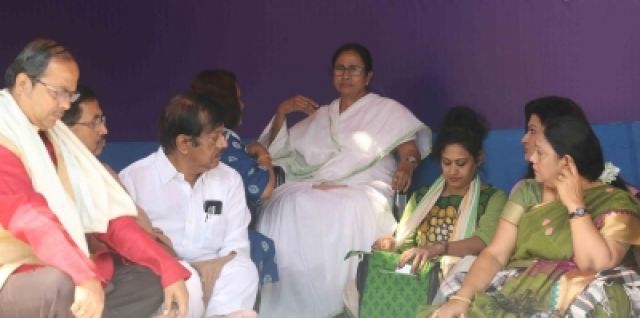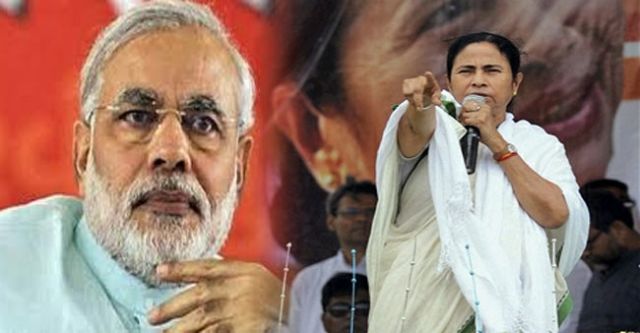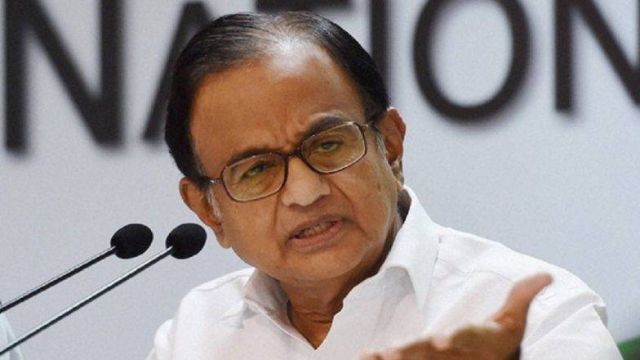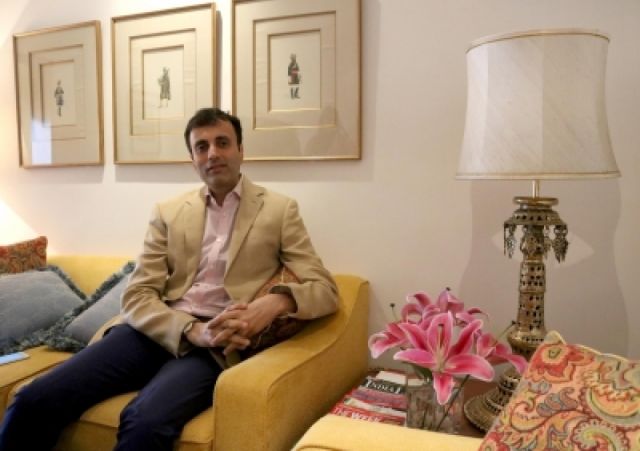
by Editor | May 25, 2021 | News, Politics
 By Sirshendu Panth,
By Sirshendu Panth,
Kolkata : Trinamool Congress supremo Mamata Banerjee is not only West Bengal’s first woman Chief Minister and perhaps the most feisty woman politician in the country today but she also has her own women’s brigade – an eclectic mix who swear by their leader.
While some of them are glamorous, having joined politics from the corporate or the entertainment world, others are consummate street fighters – much like what Banerjee was (and could still be, going by recent events) for most part of her public career.
There’s Mahua Moitra, glamorous, urbane, sophisticated and combative. She is a graduate in economics and mathematics from Mount Holyoke College, Massachusetts. She left her cushy job as vice president of JP Morgan in the UK and joined politics in September 2008, when Rahul Gandhi drafted her in the Youth Congress as a state coordinator for his Aam Aadmi Ka Sipahi project.
But quickly sensing the political mood of the state, Moitra switched over to the Trinamool Congress two years later and is now an MLA from Karimpur in Nadia district.
She is a familiar face in television debates, particularly on the national channels, where her gift of the gab, persuasive reasoning and good command over English come in handy for the Trinamool Congress in arguing the party line.
BJP leader and union minister Babul Supriyo got a taste of Moitra’s combative nature when she filed a police complaint against the singer-politician for allegedly insulting her by twice asking “Mahua are you on Mahua” (Mahua are you inebriated) during a television debate.
Then, there’s Nayna Bandopadhyay (nee Nayna Das). A popular actress in Bengali films and television serials in the 1980s and 1990s, she had a large following among screen buffs.
Married to Sudip Bandopadhyay, the Trinamool Congress leader in the Lok Sabha, Nayna represents the Chowringhee constituency, which she won in a by-poll in 2013 and repeated her success three years later. Previously a single-term MLA from another city constituency, Bowbzar, she vacated the seat for her husband in 2006.
Nayna’s equations with Mamata Banerjee have fluctuated with her husband’s political allegiance.
Soon after becoming an MLA in 2001, Nayna had got access to Banerjee’s inner circle, where her husband had a coveted place. Nayna had come so close to Banerjee that she was known to even give grooming tips to her leader.
However, all that changed when her husband quit the party and contested the Lok Sabha election as an independent backed by the Congress in 2004. Nayna then turned critical of Banerjee, and even gave interviews castigating her.
The script again reversed as Sudip Bandopadhyay returned to the Trinamool Congress after some time.
As for Sonali Guha, for years she has been the alter ego and constant companion of her “didi” (elder sister, as Banerjee is affectionately called).
A four-time legislator from Satgachia, a seat once held by the legendary Jyoti Basu, Guha is known for her acerbic tongue and tempestuous nature, which has landed her in controversy time and again. She once locked a police station from outside after abusing the officers, and on another occasion was accused of manhandling and threatening residents of an apartment in Howrah. During the latter incident, Guha was the assembly Deputy Speaker, a post she held from 2011-16. During the 2016 assembly election, the Election Commission ordered an FIR against her for intimidating voters.
It was her antics that perhaps prompted Mamata against giving her the Deputy Speakers’s post in 2016.
But then, Guha has been a disciplined soldier of the party through the various crests and troughs of her political life. She is known for her hard work, organisational ability and popularity among the rank and file.
There is also Dola Sen, a one-time Maoist and militant trade unionist who joined Banerjee during the peasant movements in Singur and Nandigram in the twilight years of the Left Front government and is now a Rajya Sabha MP.
Culturally-oriented and well read, she is much-loved by Banerjee for her rendition of mass people-oriented songs during sit-ins and demonstrations — like the one which ended on Tuesday.
Chandrima Bhattacharya is a trusted lieutenant of Banerjee, being the president of the Mahila Trinamool Congress and holding independent charge of the judicial and law department. More importantly, she is the Minister of State for Health and Banerjee’s eyes and ears in the crucial ministry.
Indrani Haldar is a National Award-winning actress who had taken part during a protest movement against the Left Front regime during the Nandigram movement, but joined the Trinamool as late as 2017, during its July 21 Martyr’s Day rally.
The 48-year-old cannot be called a hardcore politician. At best she is a part-time politician surfacing on the Trinamool platform at big events like the latest sit-in.
(Sirshendu Panth can be reached at s.panth@ians.in)
—IANS

by Editor | May 25, 2021 | Opinions, Politics
 By Ujjwal K Chowdhury,
By Ujjwal K Chowdhury,
The contest is apparently evenly poised as on today, Tuesday, February 5. The Bharatiya Janata Party (BJP) has projected the Supreme Court order directing Kolkata Police Commissioner Rajeev Kumar to make himself available before the Central Bureau of Investigation (CBI) as a blow to the Mamata Banerjee-led government in West Bengal and a moral victory for the investigating agency. The court, however, also said that no coercive steps should be taken against Kumar and noted that the questioning should be done at a neutral place (which is being finalized as Shillong now).
However, the Trinamool Congress government in West Bengal also hailed the court’s order as a vindication of its stand. Mamata Banerjee said that her government had never said it would not cooperate with the CBI, but her opposition was to the manner in which CBI swooped down on senior IPS officer Kumar’s residence. She said that the court ordering that no coercive action could be taken against Kumar was a vindication of her stance.
And both are right in some measures.
It goes without saying that every IPS officer is expected to cooperate with government investigation against any crime if asked to. The office records show Rajeev Kumar was attending office, was on personal leave for a day, and was not absconding. However, he ignored a couple of summonses of the CBI earlier on this issue. It must also be noted that Rajeev Kumar, who headed the Special Investigative Team to probe the Sarada and Rose Valley ponzi scams before the cases were taken over by CBI, had already got several Trinamool Congress leaders, including ministers, arrested.
The CBI claims that he is protecting some others in the cases and is a “potential accused himself”. It goes without mention too that the Kolkata Police Commissioner reports to the West Bengal government, being in state cadre and the Chief Minister had restrained the CBI from unilateral action in the state without keeping the state government and the state police informed as per CBI Act. Further, there was no explicit Supreme Court order for Rajeev Kumar’s arrest and there was no FIR against him. These arguments placed before the Supreme Court led to the directives by it.
That the CBI’s intentions in the case remain doubtful are due to the fact that two among the prime accused in the Sarada ponzi scam case, as per the CBI’s own investigations earlier — Mukul Roy, formerly of the Trinamool Congress, and Himanta Biswa Sarma, formerly of the Congress — have been let off with no further investigation following initial interrogations after they both joined the BJP. They are BJP President Amit Shah’s key political pointsmen in West Bengal and the North-East.
Himanta Biswa Sarma was not named in the charge sheet but his home and office were raided and he was named by the founder of Sarada chit fund. Roy was interrogated many times and his home raided and arrested in the case like TMC MP and media baron Kunal Ghosh. Without any progress in the probe against these two top political leaders of the BJP in the region, going after others will always remain suspect, and will be politically used by the Trinamool Congress and others in the polls ahead.
The current case comes up for further hearing in the Supreme Court on February 20 and the story is far from being over. There could be more arrests in the ponzi scams, and there could be more political leaders involved too. Beyond legalities, politics is also about optics. The West bengal Chief Minister has seized the opportunity and turned this into a David versus Goliath fight, coming out onto the streets, asserting her federal rights as Chief Minister with powers over the state police, and attempting to turn it into a Modi versus opposition-governed states impasse. And to a good extent she has succeeded.
So, we have the entire opposition standing with her through tweets and inside Parliament (both Houses being adjourned due to this). Apart from the opposition parties supporting her, including Congress and the Bahujan Samaj Party (BSP), except for an explicit support from the Communist Party of India-Marxist, even neutral Biju Janata Dal (BJD) of Naveen Patnaik and BJP ally Shiv Sena have expressed their dismay at the harsh CBI action in Kolkata of gheraoing Kumar’s house, not taking the state government into confidence, and creating a “war-like situation on the streets of Kolkata”, as a spokesman for an opposition party noted.
Optically, Mamata Banerjee on the streets a la her struggling days against the Left Front government is a strong political imagery. It becomes a strong image for the anti-Modi political spectrum. However, whether it is good enough to propel her to the leadership of anti-Modi politics of India is yet to be seen. But coming soon after her mega rally of all opposition parties against the Centre in Kolkata recently, this episode has further enhanced perceived bias of the CBI (named as a caged parrot even by a Supreme Court judge), emboldened the allegation that the Modi government is rabidly antagonistic towards non-BJP state governments, and has further positioned the Chief Minister as the strongest voice against Modi with just 10 weeks remaining for the next general elections.
Congress President Rahul Gandhi on his own is still unable to bring the entire opposition at one table under his leadership and has been snubbed in Uttar Pradesh by the regional parties there. DMK chief Stalin and Rashtriya Janata Dal (RJD) leader Tejasvi Yadav apart, no other regional party leader has come out openly on Gandhi as the face of opposition unity.
The entire opposition, except for Akhilesh Yadav of the Samajwadi Party, is wary of Mayawati, the BSP supremo, for her inaccessibility, past association with BJP and sharing of power in Uttar Pradesh, and the fact that her leadership of the opposition camp may deprive other parties from their current Dalit support in various states. Mayawati as the main anti-Modi face will prompt a large section of the Dalit electorate from various states to move towards her from the BJP and more so from other opposition parties. That is a long-term loss.
So, Mamata is, by default, a possible choice. Her influence is limited to West Bengal and some pockets in the North-East, and hence, does not very much conflict with votebanks of any opposition party as such beyond this limited geography. In any case, she expects to be the third largest party in the next Lok Sabha, much in tune with the current Lok Sabha, and hence, as in Karnataka, Rahul Gandhi may spring a surprise by lending support to the leader of the third party, Trinamool Congress, to form the government should Modi and the NDA fail to do so. She is making her road to power stronger now.
The issue is of a consensus leader of the opposition ahead of the election, and the chances of finding one looks bleak as of now. But through the developments of the last one month, from the Brigade Parade ground rally of January 19 to the impasse now over CBI’s actions in her state, Mamata Banerjee has surely bolstered her chances. And Modi has contributed to her scores that much and a shot up in the semblance of unity within the opposition camp.
(The writer is a known media academic)
—IANS

by Editor | May 25, 2021 | News, Politics
 New Delhi : India’s economy that had recovered from the damage caused by the ‘Great Recession’ of 2008, cruising at a growth rate of 7.5 per cent, has been derailed by the Modi government, says former Finance Minister P. Chidamabaram who feels that the damage done to the economy is as worrying as that done to the society.
New Delhi : India’s economy that had recovered from the damage caused by the ‘Great Recession’ of 2008, cruising at a growth rate of 7.5 per cent, has been derailed by the Modi government, says former Finance Minister P. Chidamabaram who feels that the damage done to the economy is as worrying as that done to the society.
“Everyone who brought sensible ideas to the table to turn the economy around has left the government in disgust and despair,” he says, accusing the ruling dispensation of “manufacturing statistics and asking people to eat statistics”.
He makes these observations in “Undaunted: Saving the Idea of India”, which is scheduled to be launched by former Vice President Hamid Ansari on February 8 here.
“An old civilization that has accommodated many religions, cultures, languages, communities and castes, and has tried during the last 71 years to become a modern nation, is so polarized and divided today that there is real cause to worry about its survival,” he asserts in the Introduction to the upcoming book.
He states that former Prime Minister, the late Atal Bihari Vajpayee, understood the fundamental rules of democracy and “gracefully gave up power after 13 days, again after 13 months, and once again after 5 years” but laments that “his example has been forgotten – and perhaps rubbished in private – by the swayamsevaks in power today”.
He says “every value of the Constitution is under attack” in contemporary India and fears that there is a “clear and present danger that the Constitution of India will be replaced by a document that will be inspired by an ideology called Hindutva”.
That, Chidambaram says, will be the end of the ‘idea of India’, restoring which will require another freedom struggle and another Mahatma (Gandhi).
Adds Ansari in the Foreword: “If the budget is passed without scrutiny and debate by the Parliament; and if important pieces of legislation are endorsed without reference to Standing Committees, then it is evident that the Parliament as the designated legislative institution is not doing its duty and the government of the day is failing in its primary duty…”
The book, a collection of Chidambaram’s published essays, published by Rupa, is set to be launched on Friday.
—IANS

by Editor | May 25, 2021 | Interviews, Politics

Ruchir Sharma
By Saket Suman,
New Delhi : The popularity graph of Prime Minister Narendra Modi has fallen drastically and what seemed a year ago as another wrestling match “with only one boxer in the ring” now seems a Lok Sabha election too close to call, says global investor and bestselling author Ruchir Sharma.
Sharma, who has been chasing election campaigns in India for over two decades and has just written “Democracy on the Road”, says that this change reflects the strength of Indian democracy and is particularly significant at a time when obituaries calling the death of democracy rule the roost in many parts of the world.
This neck and neck fight at a time when there is so much despair about democracy in the world, Sharma said, shows how deeply rooted India’s democratic set up is.
He said that Modi had begun eyeing the Prime Minister’s post long before 2014 and following him closely during the election campaigns, Sharma could make out as early as 2012 what his real ambition was. On the other hand, Congress President Rahul Gabdhi was a very different person, immature, not interested in listening, and with not-so-good campaigning skills.
Cut to the present, Sharma said, Rahul Gandhi has changed, he is much more sensitive, he seems to listen and engage more.
“He seems like a full-time politician now, even his campaigning skills have changed, he implies shout-and-call technique a lot more like Modi. There has been a significant change in him,” Sharma told IANS in an interview.
But what really is going to stop Modi?
Sharma said that there is a gap between what prevails in popular media and the actual mood of the voters in the hinterland. He said the 2019 elections will be a true parliamentary election where regional leaders, instead of the prime ministerial candidate(s), will sway the votes.
“India is just not cut for a presidential election. There was a Modi wave in 2014 but even then it was restricted to the north and parts of the West but BJP’s vote share was still only 31 per cent. The mood of the voters will vary from state to state as to what alliances are stitched up,” he added.
He said that Priyanka Gandhi’s entry is too late to make an appeal in Eastern UP.
Describing her as a “charismatic leader” on the ground, Sharma maintained that her plunge is too late because of the caste blocks in Eastern UP. He, however, said that the greatest difference she can make is if she stands as “the combined Opposition candidate from Varanasi against Modi”.
She has to do something as big as that because then the energy will be focussed in one big constituency that will have a larger impact, he said.
According to Sharma, the biggest difference between the 2014 and the 2019 general elections will be that in 2014 the BJP was “far too ahead in the social media game” whereas now the other parties have caught up too and “the gap has narrowed”.
He said that in a country as diverse and heterogeneous as India, it is very difficult for one leader to dominate a nationwide election.
There is hardly any discussion about Rahul Gandhi or Modi in Tamil Nadu, it’s always about the regional leaders. That’s how our country is, it will not be easy for one centrist person to dominate the elections, he said.
(Saket Suman can be contacted at saket.s@ians.in)
—IANS

by Editor | May 25, 2021 | News, Politics
 Kolkata/New Delhi : The unprecedented stand-off between the Narendra Modi government and the Mamata Banerjee government in West Bengal stretched to the second day on Monday as the feisty Chief Minister continued her sit-in, emboldened by the support from opposition parties from various states, some of them even joining her on the dais.
Kolkata/New Delhi : The unprecedented stand-off between the Narendra Modi government and the Mamata Banerjee government in West Bengal stretched to the second day on Monday as the feisty Chief Minister continued her sit-in, emboldened by the support from opposition parties from various states, some of them even joining her on the dais.
With the centre-state showdown showing no signs of abating, Governor Keshari Nath Tripathi sent a detailed report to New Delhi after Union Home Minister Rajnath Singh called for it, and central paramilitary force troopers kept strict vigil at the CBI offices here.
Parallelly, Kolkata police sent notice to a top Central Bureau of Investigation (CBI) officer in an old case.
The action-filled confrontation that began on Sunday evening when CBI officials showed up near the Loudon Street residence of Kolkata Police Commissioner Rajeev Kumar for questioning him in connection with the probe into the ponzi scheme scam, also rocked Parliament and reached the legal corridors in both New Delhi and the eastern metropolis.
Banerjee, flanked by her senior ministers and top Trinamool Congress leaders, skipped dinner and stayed up the entire night on a makeshift dais in the Dharamtala area, near the Metro Y Channel after beginning the protest around 9 p.m. on Sunday.
On Monday, Banerjee seemed completely at ease doing what she has always revelled in – street protest – and yet again lent her full backing to Kumar, a 1989 batch IPS officer who had headed the Special Investigation Team formed to probe the Ponzi scam in 2013, a year before the CBI took over the case following Supreme Court’s order.
Banerjee claimed that the centre is tagging the honest people as thieves while the “real thieves” are at large.
” I was peeved when they tried to get to Rajeev Kumar… He is leading the force. If Kumar is thief, whose money has he taken?” she asked.
She claimed her “Satyagraha” was “non-political” and not against an individual agency but to oppose the “anarchic moves” by the Modi government to destroy democracy.
“Our protest is against the attempts to divide the country and spread hate, intimidation and terror among people,” she said, as her party activists put up rail and road blockades at various parts of the state, took out protest rallies with back flags and burnt Modi’s effigy.
Banerjee claimed she was getting support from across the country and said the demonstration might continue till February 8. Interestingly, Modi is scheduled to address a public meeting in north Bengal on that day.
Samajwadi Party national vice president Kiranmoy Nanda joined Banerjee at the sit-in for some time, and dubbed the CBI action as a “conspiracy”. Later, Rashtriya Janata Dal leader Tejashwi Yadav and DMK’s Kanimozhi also came to extend solidarity to Banerjee.
Meanwhile, the strength of the Central Reserve Police Force troopers deployed at the CBI offices at Nizam Palace and the CGO Complex in Salt Lake on Sunday night, was bolstered on Monday with one more company pressed into service.
“We have come here to provide security to the CBI personnel and the documents kept here,” said a CRPF trooper on condition of anonymity.
On the other hand, in a tit for tat move, the Kolkata Police served a notice to CBI joint director and head of zone (Kolkata) Pankaj Kumar Srivastava in connection with “wrongful restraint” and “wrongful confinement” of two businessmen in August last year.
Srivastava, who left for Delhi during the day with documents to help CBI lawyers in the legal fight at the Supreme Court, said he would consult his lawyers before responding to the notice.
In New Delhi, Solicitor General Tushar Mehta sought an urgent apex court hearing on Monday itself on a CBI plea describing the situation as “extraordinary”, and fearing “evidence will be destroyed”, but Chief Justice Ranjan Gogoi declined it saying “there’s no evidence of what you’re saying right now”.
The court said it would hear the matter on Tuesday.
“If you show one proof they are tampering or even remotely thinking of it, we’ll come down so heavily that they will regret it,” said Gogoi.
In Kolkata, the state government approached the Calcutta High Court pleading for an urgent hearing against the CBI’s attempt to question Rajeev Kumar at his residence despite a stay order from the court.
However, Justice Shivakant Prasad listed it for Tuesday.
Both the Rajya Sabha and the Lok Sabha witnessed uproar as opposition parties led by the Trinamool Congress protested vehemently against the CBI raid in Kolkata, calling it a misuse of the agency against political opponents, forcing the presiding officers to adjourn the Houses for the day.
Prior to the adjournment, Rajnath Singh defended CBI action, and told the Lok Sabha that the move to stop the central probe agency from performing its duties is “unlawful” and a threat to the country’s federal system.
Senior BJP leaders questioned why Banerjee was going all out to save Kumar.
Human Resource Development Minister Prakash Javadekar asked whether she wanted to save herself or the top cop, while Law Minister Ravi Shankar Prasad said Kumar was being protected as he knew some “secrets”.
—IANS





